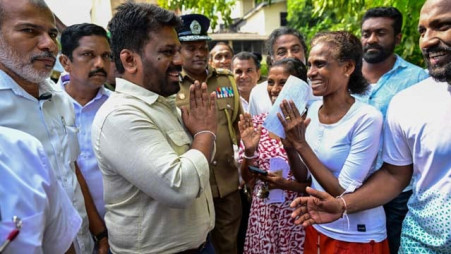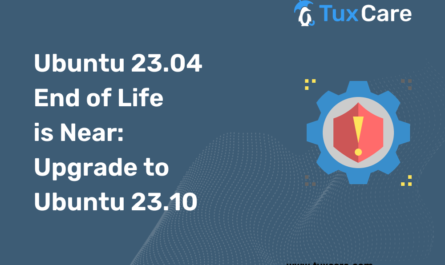

Sri Lankan President Anura Dissanayake has led his leftist coalition of 21 parties National People’s Power (NPP) to power in the island nation with a massive victory in the elections to Parliament held on Sunday, November 14. With most of the ballots counted by Friday morning, the NPP was far ahead bagging 141 seats out of the total of 225 giving it a comfortable majority. The NPP got 62 per cent of the votes and was leading in all but one of the 22 electoral districts.
The NPP victory is a personal triumph for the Marxist President Anura Dissanayake who exuding confidence announced the dissolution and holding of new elections to Parliament on November 14, soon after his own election as the President in the historic Presidential elections in September this year. The 55 year old Dissanayake could assess correctly the mood for change in the electoral behaviour of the Sri Lankans as they were tired with the dynastic political parties which ruled the nation for decades. In the outgoing Parliament, the NPP had only three seats out of the total of 225 but still, President Anura Dissanayake took the risk of opting for seeking a fresh mandate.
Samagi Balawegaya (SBJ) led by Sajith Premadasa, the son of former President Ranasinghe Premadasa, got 35 seats while Ilankai Tamil Arasu Kachchi representing the Tamil ethnic minority got six seats and New Democratic Front(NDF) and Sri Lanka Podujana Peraamuna got three seats and two seats respectively. 65 per cent of the 17 million voters cast their votes in the November 14 elections. This was quite low compared to 80 per cent votes cast during the September Presidential elections.
NDF is led by the former president Ranil Wickremesinghe. The NPP is expected to get two-third majority in Parliament as about 26 seats out of 225 are reserved based on share of votes of the contending parties. NPP may get about 18 out of these 26 seats. So the total seats of NPP may touch 159 out of the total of 225.ddd.. This will be a big boost for the President Anura Dissanayake to take Sri Lanka to his path of equity and prosperity.
Dissanayake, whose JVP spearheaded a bloody armed revolt against the ruling Sri Lanka government during the 1970s and 1980s, has pledged to fight corruption and seek “alternative means” to shore up the South Asian nation’s finances that impose less of a burden on the poor. He took a prominent part in the 2022 mass upsurge in Sri Lanka against austerity measures and the acute shortage of essential commodities. This led to the resignation of the then president Gotabaya Rajapaksa. He was replaced by Ranil Wickremesinghe who also remained unpopular due to his failure to take care of the ailing economy.
The Sri Lankan scenario in November 2024 has some similarity with the present situation in a few Latin American countries like Colombia and Honduras, where the last presidential elections witnessed regime change in favour of the leftists who fought against the US-backed establishment parties for long years even with arms. Dissanayake’s party JVP also twice resorted to arms struggle against the then ruling Sri Lankan governments, but changed course in the last decade to transform into a political combination wedded to functioning through parliamentary democracy.
The comfortable majority in Parliament will give President Dissanayake to go ahead in implementation of his proposed programmes without any hindrance from the decimated opposition. The mood of the people of Sri Lanka is for change and they see in the President and his coalition NPP the vanguard of that change. President Dissanayake knows this. The Sri Lankans have high expectations from his administration. He has majority now, he can implement reforms at his own will, there is no scope for excuse.
Earlier during his tenure as opposition leader, Anura Dissanayake strongly criticized the IMF policies for stabilization. But after becoming President, he has reconciled to the programme. He is however looking at the possibilities of diluting its adverse impact on the poorest sections of the population. The NPP programme has big plans for reorganizing the public sector industries and monitoring the operations of some private sector companies which were under scrutiny earlier.
Sri Lanka may be in economic crisis, but the standard of living of the people is much higher as compared to India and other South Asian countries. The education level and women empowerment have been praised by the United Nations in many reports. The issues are corruption at the high level of the administration involving the earlier ruling families and problems about distribution in some essential goods.
In recent years, the real income of the workers and low paid Si Lankans has fallen. The unemployment has also suddenly increased like many other South Asian countries. Dissanayake government has to deal with these pressing issues in the next one year to the satisfaction of the Sri Lankan citizens if the NPP president wants to bring about basic changes in the economy and social life as per the NPP programme. The path is tortuous but Dissanayake has the advantage, he can get a honeymoon period now with comfortable majority.
What is going to be the impact of regime change in Sri Lanka on India and the South Asia policy of our Prime Minister Narendra Modi? Sri Lanka is a very important nation in the Indian Ocean zone and all through the last decade, the Sri Lanka government has been under pressure from USA, China and also India to suit their respective Asia-Pacific policies to the strategy of these three big powers.. Sri Lanka needs both China and India. Though as a Marxist, Dissanayake will be more friendly to China compared to India in his foreign policy perspective, but being a pragmatist, he is not expected to give in too much to Chinese pressure. Already Sri Lanka is a participant in China sponsored BRI initiative. This can be expanded to the benefit of China with the approval of more projects.
But Dissanayake will certainly not agree to any overture from USA for maritime facility in the Indian Ocean zone of Sri Lankan territory. His programme is committed against it. It is expected that he will follow the example of Vietnam by acting only in the country’s interest while keeping business relations with both China and USA. Vietnam has good experience in knowing Chinese nationalist ambitions in South China Sea waters including the areas belonging officially to Vietnam. Dissanayake, that way is expected to be cautious in dealing with China under Xi Jinping, despite being a Marxist himself. His Presidential office room has got photographs of Marx, Engels, Lenin and Fidel Castro, not any Chinese communist leader.
As regards India, all depends how India sees its relationship with the new regime to grow. India has helped a lot Colombo during 2022 crisis and later in the last two years. The leftist president is not expected to create any problems for India as India-Sri Lanka collaboration helps Colombo more. But there is a small problem. The NPP coalition partners as also JVP members have a bit anti- India sentiment. The reason is the PM Modi is the leader of a right wing party BJP and he is closest to the USA among the SAARC members. The JVP members are generally anti-US and they are against India becoming a part of the US strategy in Indian Ocean.
Narendra Modi has to approach the new Sri Lankan president with an open mind, not thinking that Dissanayake is soft towards China. Chinaphobia should not determine Indian PM’s decision making regarding relationship with any South Asian country. India can emerge as a great friend of Sri Lanka by expanding the areas of economic collaboration and extending more financial assistance. Ultimately, the economy matters. India has just got that feeling after the Maldives President Muizzu gave up much of his earlier anti- India position and sought collaboration with India. In South Asian diplomacy, economy matters most., India is advantageously placed to expand economic collaboration with Sri Lanka.
For India and Narendra Modi, the crucial issue is the isolation of India among South Asian nations after the coming of the new president in Sri Lanka. Out of the eight nations comprising SAARC — Afghanistan, Bangladesh, India, Bhutan, Pakistan, Maldives, Nepal and Sri Lanka, two are led by known leftists now — Nepal and Sri Lanka. India’s relations with Bangladesh, Pakistan and Afghanistan are in bad state – not normal. The relations with Bhutan, Nepal and Maldives are now free of earlier tensions, but not fully normal. The relations with Sri Lanka will have to be seen now how it shapes up in the coming months with President Anura Dissanayake and his NPP in power in Colombo. (IPA Service)


